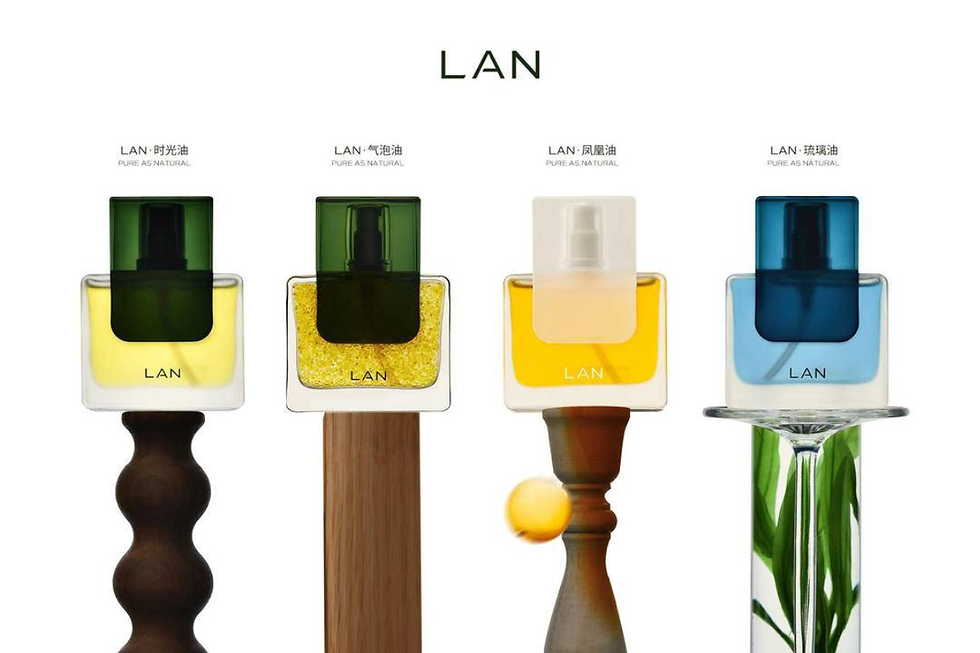INSIGHT | China Marketing Laws
- wynnieliang
- Apr 7, 2022
- 4 min read
Updated: Sep 13, 2023
Marketing in China can be complicated for international companies, especially when it comes to compliance. I get asked about this issue too often and have seen many brands facing penalty because of non-compliance marketing. It's important for brands to understand the local laws here and work with a professional local team to avoid any penalty.

In this article, we have summarized the most commonly encountered scenarios and most important regulations applied to different industries. In the end we also list out several laws that are most related to compliance of marketing activities.
1. PROHIBITIVE CONTENTS
Superlative phrases: You can't claim to be "the best", "the first", "the highest", "100%", "world class" and "national level" etc.
Authority-related contents: You can't say a product is "recommended/used by authorities/government".
"Exclusive" and "patented": You must show proof that this formula/technology/design is actually "exclusive" and remark the patent number for any patents mentioned.
Vague about time: You must clearly state the time for marketing activities, for example, "10am to 6pm on April 1st" instead of "today" or "now".
Pornography, gambling, superstition, terror, violence contents.
Ethnic, racial, religious and sex discrimination contents.
Inductive and fraud contents
2. RESTRICTED INDUSTRY
💄 Beauty & Cosmetics
The registration certificate issued by National Medical Products Administration must be provided
Only special cosmetics can claim special efficacies, including hair dye, hair perm, anti-hair loss, whitening, spot removing, and sunscreen
You can't claim or imply that cosmetics have medical performance, such as "lose weight", "detox", "anti-inflammatory" and "remove scars" etc.
You can't say a cosmetics product contains "traditional Chinese medicine"
You can't say the product is "100% natural" or "pure natural"

CASE: In February 2022, Estée Lauder paid 2.38 million RMB penalty for its misleading efficacy contents, which claimed that the users' "Youth Index" will increase 77%
💊 Health Supplements
You can't guarantee the performance
You can't say it can prevent or cure a disease
You can't claim or imply that it's a necessity for health protection
You can't show comparison with medicines and other health supplements
You can't hire a brand ambassador for endorsement
The commercials must include "this product can't replace a drug"
💊 Drugs & Pharmaceuticals
Narcotics, toxic drugs for medical use, and radioactive drugs can't be advertised
You can't advertise for prescription drugs on mass media. It can only be advertised on designated medical publications
For OTC drugs:
You can't guarantee the performance
You can't state the cure rate or effective rate
You can't show comparison with other drugs in efficacy and safety or with other medical institutions
You can't hire a brand ambassador for endorsement
🚬 Tobacco
Tobacco advertisements are banned in mass media, public places, public means of transport or outdoors. It is prohibited to send any form of tobacco advertising to minors
🍷 Alcohol
You can't induce or encourage drinking alcohol or to promote unrestrained drinking in your ads
You can't show someone actually drinking alcohol in the ads
You can't show someone driving a car, boat or aircraft in an alcohol ad
You can't claim or imply that drinking can help reduce tension and anxiety, and improve physical strength, etc.
👩🏫 Education & Training
You can't guarantee the education/training results, for example, pass the exam or get a degree
You can't imply that the training is participated by examiners or staff
You can't use the name or image of research institutions, academic institutions for recommendation
💰 Investments
You must show reasonable warnings on the potential risks and liabilities
You can't guarantee the results and benefits, or imply there is no risk
You can't use any academic institutions or professionals for recommendation
🏠 Real Estates
The property information must be true
You can't guarantee the return on investments
The location of the property must be indicated by how long it takes from the property to a certain facility
No misleading information about local transportation, commercial, and education facilities under planning or construction
3. LIVE STREAMING
Live streaming is one of the most popular sales and marketing methods now. The industry used to be chaotic because of the weak control. In May 2021, a new measure for regulating live streaming marketing was implemented - the industry has been more regulated since then.

Austin Li, the top live streamer is streaming
Besides what I mentioned above, there are a few additional points that brands need to keep in mind if you are planning a live streaming:
No live streamers under age 16
No recommendations before actually using the products - This also applies to any other kinds of endorsements and endorsers
No fake traffic or transaction data - This also applies to any other kinds of advertisements - You must indicate references for any data you mention in your commercials
No fraud or inductive information to induce audiences to pay rewards
It's prohibited for minors to pay rewards during live streaming
4. REFERENCES
Below we list out a few laws and regulations that we think are significantly important for marketing in China. We highly recommend brands (not only marketers, but also management) to read through.
Want some help in China marketing compliance?
It's important to understand and comply with the regulations in China, which can be complicated for foreign companies. Contact us to learn more about how we help you avoid any compliance risk.



Comments